Artificial Intelligence (AI) and Robotics represent long-term transformational shifts, affecting the way businesses operate and how people live. Recent technological advancements in AI and Robotics are disrupting a range of industries from manufacturing, to healthcare and transportation.
Previously we discussed how digital revolution in big data & AI has been transforming the way we live. In this piece, we further explore the theme of AI & its applications when combined with Robotics, along with examples of a few leading companies that are captured in our recently launched ETF on Asia Innovation.
What are AI & Robotics?
Robotics is an interdisciplinary branch of engineering and computer science. It deals with the design, construction, operation, and use of robots, as well as computer systems for their control, sensory feedback, and information processing.
Statistics from the Internal Federation of Robotics reported that worldwide robot sales have reached over 380 thousand units in 2017, more than tripled from five years ago. Asia is home to the top 3 markets – China, South Korea, and Japan – accounting for almost 60% of world sales.
Global Sales of Industrial Robots (Units Sold)
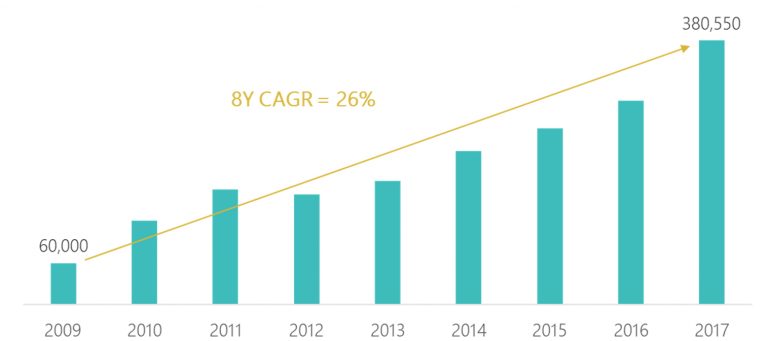
Source: IFR Statistical Department, Premia Partners analysis
AI is a recently rising theme to many people, but it is rather a broad concept - Wikipedia defines AI as follows: “Artificial intelligence (AI), sometimes called machine intelligence, is intelligence demonstrated by machines, in contrast to the natural intelligence displayed by humans and other animals.” While many use the terms AI, machine learning (ML), and deep learning (DL) interchangeably, they are not the same. To put it simple, AI is the macro topic of machines performing tasks that once required human intelligence to complete, and it broadly encompasses the entire field of study of which ML and DL are sub-segments.
A smart AI mind + an agile robotic body - together, advancements in the two fields are revolutionizing the way we complete tasks, analyze data, and make decisions. Below, let’s take a closer look at a few examples in Asia –
AI & Video Surveillance: Image recognition leader Hikvision
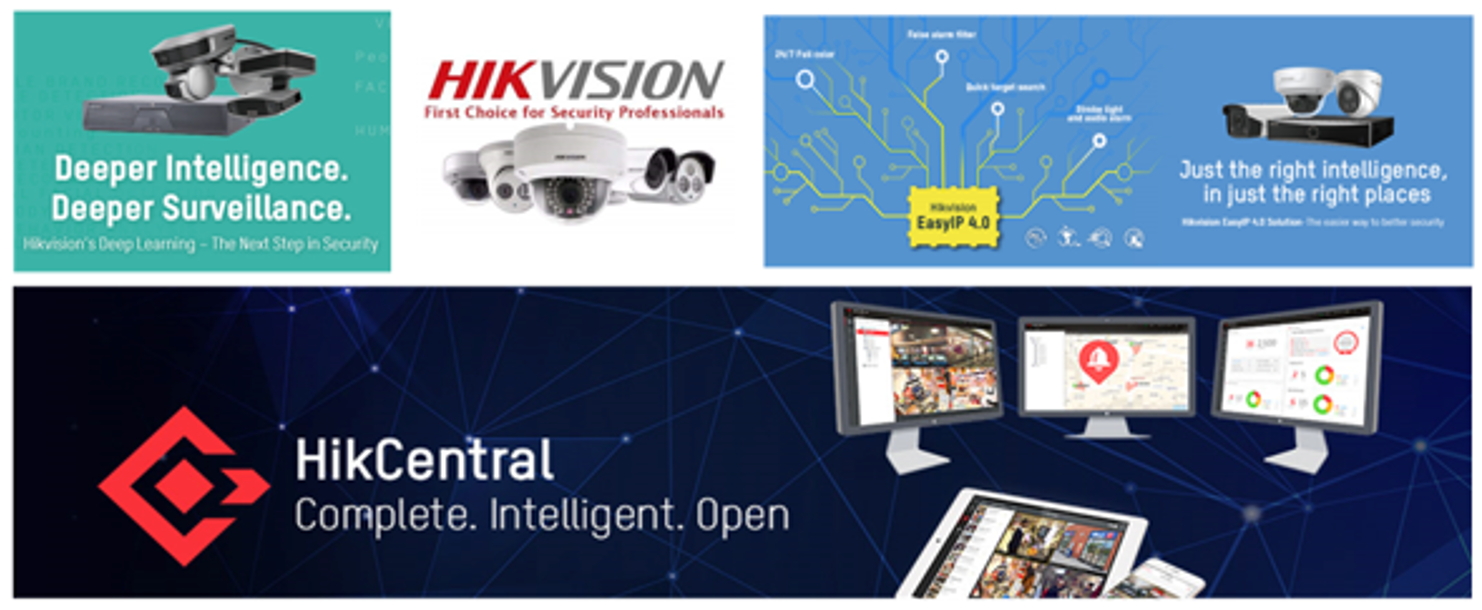
Source: Hikvision
Hikvision is a Chinese company that specializes in intelligent video surveillance solutions, and it is one of the world’s largest security & surveillance manufacturer. Since founded in 2001, the company has been a pioneer in the video surveillance industry with core technologies in audio and video encoding, video image processing. The flagship product HikCentral has facial recognition, face matching, face searching, and people counting features, and can be integrated with security access control and alarm systems. Over the past several years, Hikvision has expanded its business into vertical markets, such as transportation, education, healthcare and industrial automation. The AI-enabled video intelligence technology allows it to be a key player of smart city and smart home in the IoT era.
AI & Healthcare: Speech and voice recognition leader iFLYTEK
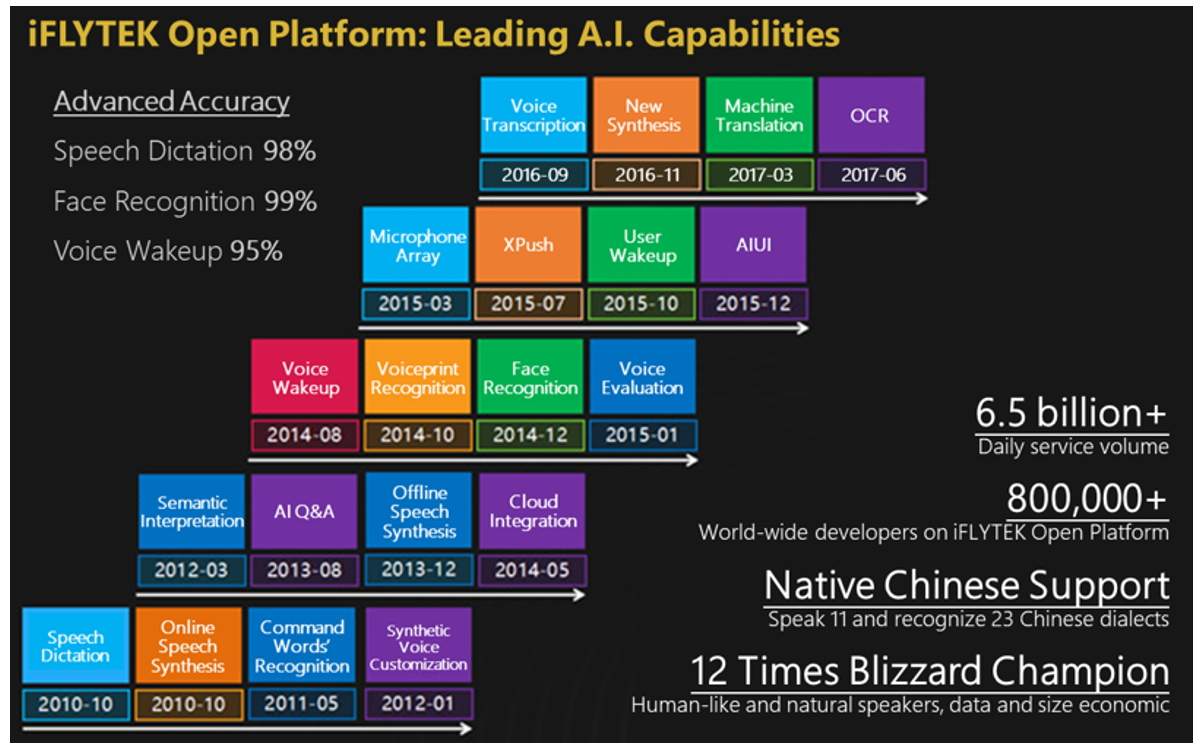
Source: iFLYTEK
iFLYTEK is the No.1 speech recognition solution provider in China, and a global leader in speech-based artificial intelligence technology. It was ranked #6 in MIT Technology Review’s Global 50 Smartest Companies in 2017. The company applies deep learning in a range of fields such as speech recognition, natural-language processing and machine translation. In China, court systems use its voice-recognition technology to transcribe lengthy proceedings; business call centers use its voice synthesis technology to generate automated replies; and Didi, a popular Chinese Uber-like app, also uses iFlytek’s technology to broadcast orders to drivers.
Recently, iFLYTEK has put significant efforts expanding its technology to healthcare applications. An iFLYTEK robot passed the written test of China’s national medical licensing examination, and its AI-enabled robots are now in use at many hospitals, from directing patients to the right departments based on patient’s described symptoms to helping doctors capture their dictations and analyze patient information.
Robotics & Entertainment: Consumer electronics leader SONY
While many believe robotics have only recently become a viable technology, the Japanese electronics giant SONY has been involved in AI & Robotics since last century. SONY released its AIBO home entertainment robot in 1999, and the company continues to develop its core AI technologies and recently redesigned AIBO with advanced AI capabilities. The new AIBO is designed to be an autonomous entertainment robot that can form an emotional bond with owner. Furthermore, with AI and facial-recognition technology, AIBO can learn and adjust its behavior based on the owner’s unique characteristics, and even develop its own personality over time.
Sony’s Innovation in Home Entertainment – AIBO Robot Design

Source: Sony
Recently, Sony is partnering with Carnegie Mellon University to work on AI & robotics applications in food preparation, cooking and delivery. Such would teach machines to handle fragile and irregularly shaped materials in small areas, which could be transferrable to many other industry applications.
Robotics & Manufacturing: Industrial automation leader FANUC
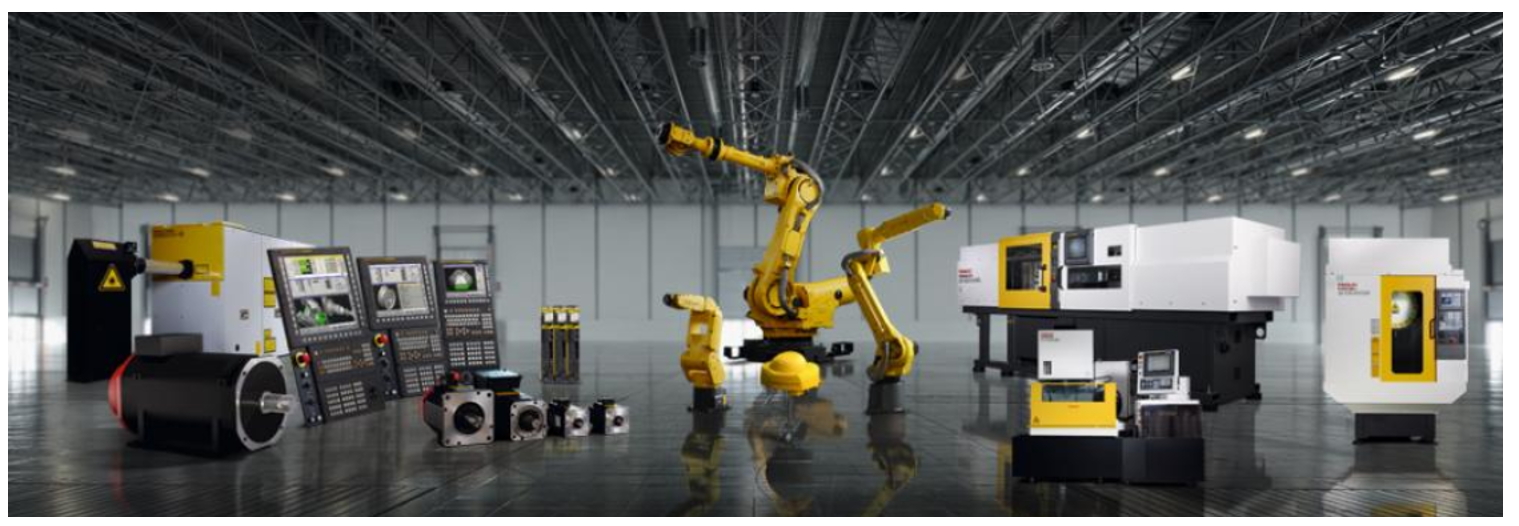
Source: FANUC
FANUC has been a prominent player in robotics and automation industry since the early 1970’s. The company specializes in developing computerized numerical control (CNC) systems, which are robotic machines that execute on fed instructions with a high degree of accuracy and efficiency.
A forerunner in robotics & automation, FANUC’s commitment to enhancing industrial manufacturing process through robotics technology is deep in its own gene. The company has been operating a "lights out" factory since 2001. Their robots are building other robots at a rate of about 50 per 24-hour shift and can run unsupervised for as long as 30 days at a time. Recently, FANUC is also partnering with Nvidia to power an AI platform that will allow factory robots to learn over time and from each other.
AI & Connected Cars: Samsung, Baidu
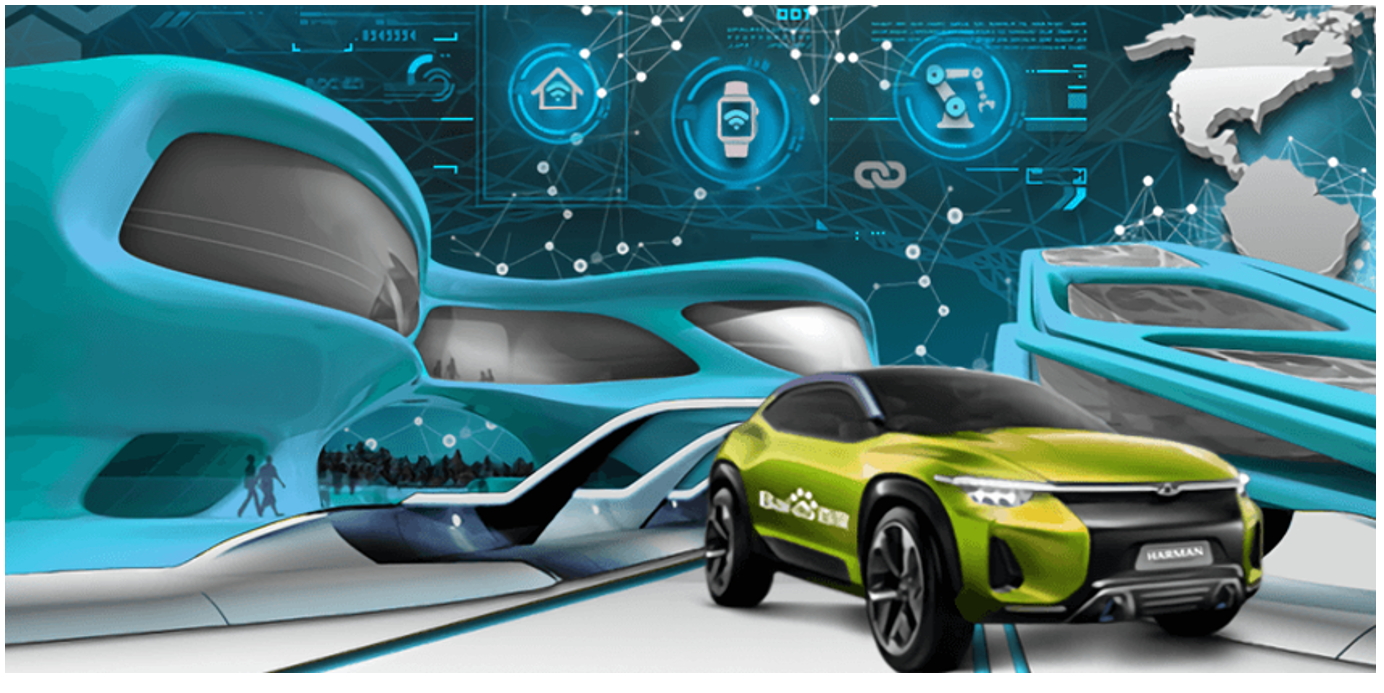
Source: IoT Automotive
It is widely believed that AI is set to cause massive disruption within the transportation industry. Although obstacles remain for fully autonomous vehicles, the trend in electrical vehicles and connected cars has been magnificent. Large technology giants like Samsung and Baidu have been at the leading edge of developing smart automotive technologies in Asia, not only taking inputs from sophisticated sensors, GPS, and radar systems to effectively put digital eyes on the vehicle, but also adding in virtual assistants and smart IoT devices that make the connected car a personalized workplace, an entertainment centre and a vital part of one’s digital life ecosystem.
Baidu and Harman International, a wholly-owned subsidiary of Samsung focused on connected technologies, are also partnering to jointly develop new cloud-based AI solutions for Chinese automakers with smart automotive features including automatic speech recognition (ASR) in English and Mandarin, natural language processing and speech synthesis.
Related ETFs: Premia Asia Innovative Technology ETF (3181 HK)
Related articles:
Technology-enabled innovations:DisruptingReshaping Asia growth
How is “digital revolution” in Asia transforming the way we live?

